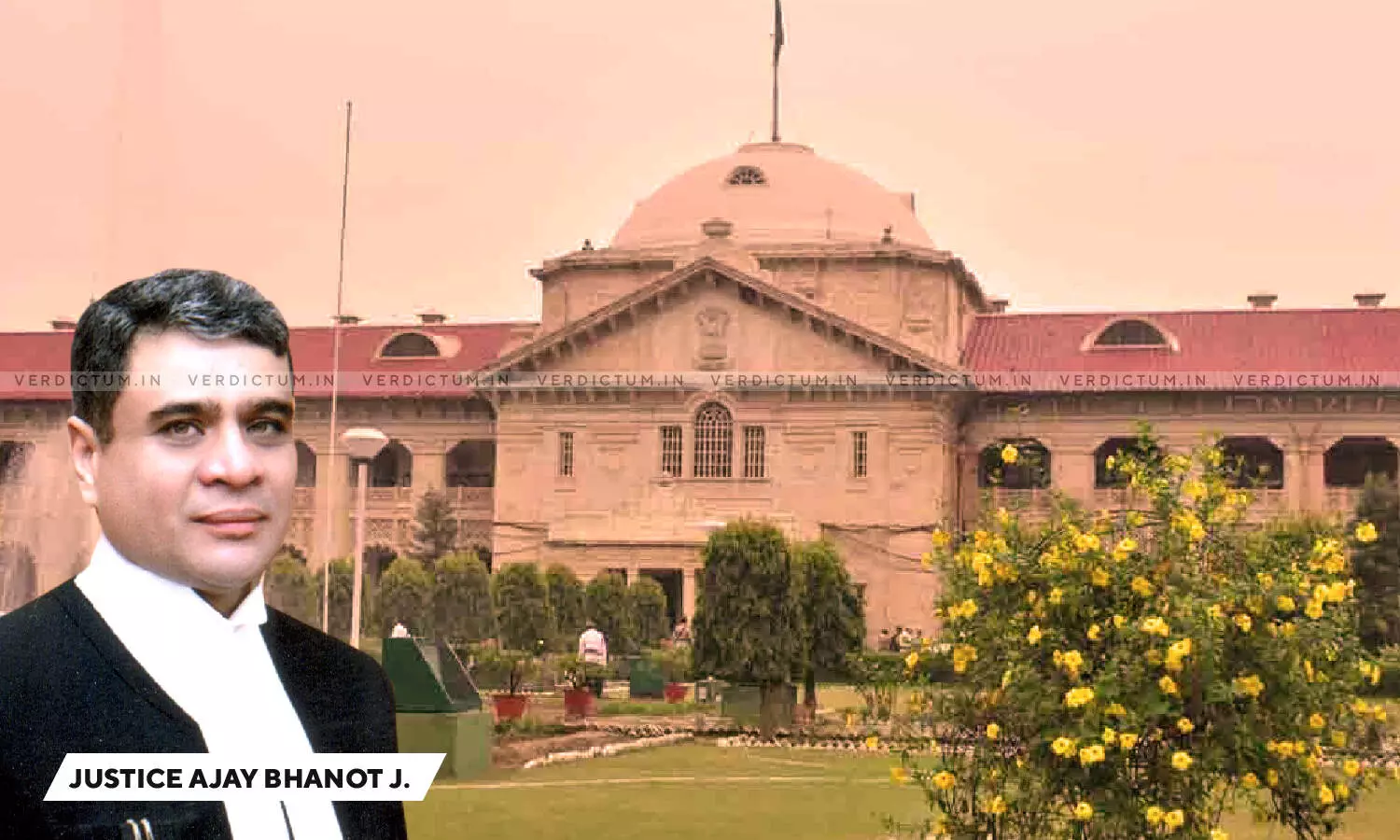
UP Police’s Recurring Failure In Ensuring Timely Appearance Of Witnesses Is Hampering Right To Bail: High Court
 |
|The Allahabad High Court allowed a bail application stating that the trial is moving at a snail's pace and shows no sign of early conclusion and that the applicant cannot be faulted for the delay in the trial. By means of the second bail application, the applicant had prayed to be enlarged on bail in Case filed under Sections 147, 148, 149, and 302 IPC and Section 7 Criminal Law Amendment Act. The applicant was on interim bail granted by this Court on July 21, 2023.
A Bench of Justice Ajay Bhanot observed that, “Inordinate delay in concluding trial had has led to virtually an indefinite imprisonment of the applicant without there being any credible evidence to implicate him in the offence and violates the rights of the applicant to speedy trial.”
Advocate Bratendra Singh appeared for the Applicants and Advocate Paritosh Kumar Malviya (AGA) appeared for the Respondent.
The Court stated that the recurring theme in Uttar Pradesh's criminal law process pertained to failure in serving summons and executing court-issued coercive processes, affecting the fundamental rights of accused individuals. This problem delays trials and hampers the right to bail.
“Prisoners spend long years in jail simply because the police authorities do not ensure appearance of witnesses on a timely basis in defiance of orders passed by the trial courts. Failure of justice becomes more acute because many of the prisoners belong to marginalized sections of the society and are incapacitated by poverty and legal illiteracy.”
The Court further elaborated Chapter VI of Cr.P.C. which outlines procedures for ensuring accused and witness appearance, progressing from summons to coercive measures. Police officers are responsible for serving summons and executing warrants, and failure to do so was scrutinized.
The Court stated that Criminal or contempt proceedings can be initiated against police officials failing to comply with court orders. The Court was of the view that Court-ordered penalties, departmental procedures, and contempt powers together can expedite trials and discourage interference in justice. The Court suggested the Nodal officers to oversee witness appearance, accountable at various police levels for timely execution.
“The police cannot deny its statutory duty to compel prompt appearance of witnesses by timely service of summons and execution of warrants on orders of the courts. The State cannot abnegate its constitutional obligation to protect the fundamental rights of prisoners who suffer prolonged incarceration due to delayed trials. Neither institution can escape accountability.”
The Court ruled that failure of police to serve summonses hampers justice and fundamental rights, demanding the State's recognition of its responsibilities.
“The magnitude of the problem of absent witnesses and inadequacy of the response of the police to enforce summons and coercive measures converge to expose a systemic fault line which threatens the credibility of the justice delivery system.”
The Court said that failure in service and enforcement violates the right to a speedy trial, particularly affecting marginalized individuals.
“Rights of accused to a speedy trial under Article 21 of the Constitution of India are being violated and fair administration of right of bail is being hampered as a consequence of these failures of the police department.”
Copies of this message were asked to be shared with relevant authorities and departments for consideration.
Cause Title: Bhanwar Singh & Ors. v. State of U.P., 2023:AHC:156201
Click here to read/download Order